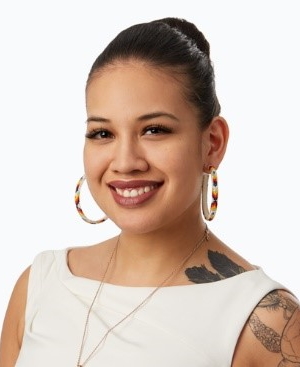Author: Ashley Richard
 A history of unethical and harmful research has created barriers between researchers and many Indigenous communities. Academia is exploring ways to rebuild trust and is making progress, but Indigenous researcher Ashley Richard has identified one area where more attention is needed.
A history of unethical and harmful research has created barriers between researchers and many Indigenous communities. Academia is exploring ways to rebuild trust and is making progress, but Indigenous researcher Ashley Richard has identified one area where more attention is needed.
Many Indigenous communities have a deep mistrust of research due to decades of exploitation. Academia has made strides in building transparent and genuine relationships by adopting co-creation and participatory research approaches, but work is ongoing.
Indigenous researcher Ashley Richard understands first-hand many of the challenges around Indigenous research and would like to see new initiatives that attract and support Indigenous researchers. "I think when research is community-driven and Indigenous-led it helps to mitigate any potential trust issues that could come up for a non-Indigenous researcher, and it also helps to build those relationships that are so necessary," she says.
Ashley believes that the best way to advance the field of Indigenous research is to have more academic role models from Indigenous communities. "The challenge is getting more young Indigenous peoples involved in research and ensuring they have the right support to succeed," she explains. "They need to feel that their culture and values are valued in the institution and that they're not going against their own core values in order to get a master's degree or a PhD. And that's about having the right indigenous faculty in place to support these young people."
Creating opportunities
Initiatives to advance Indigenous research must also come from the wider academic sector, says Ashley, who would like the industry to make more space for Indigenous research to be created and shared. In addition, the sector should generate more opportunities for engagement between Indigenous communities and Indigenous researchers.
The challenge is getting more young Indigenous peoples involved in research and ensuring they have the right support to succeed
In Ashley's view, the most genuine way to promote inclusivity is through building relationships and working on shared projects where there are tangible outcomes that benefit Indigenous communities. "It's about coming to the table without an overly set agenda and without an end goal in mind," she says. "The relationship that you build with somebody will determine the path that you both end up taking and the outcome you create might be something you had never even initially thought of."
Supporting Indigenous innovation
Ashley is Associate Director for the National Indigenous Hub, Asper School of Business, University of Manitoba, Winnipeg, a project with the Women Entrepreneurship Knowledge Hub (WEKH), focused on building an inclusive innovation ecosystem for Indigenous women entrepreneurs. Her first research project with WEKH looked at the challenges and opportunities for Indigenous women's entrepreneurship across Canada. Her next research focus at WEKH is to create an Indigenous design sprint model alongside her ecosystem partner, the Indigenous Innovation Initiative at Grand Challenges Canada.
Global connections
To amplify Indigenous voices further, Ashley has recently joined Emerald's Indigenous Peoples Advisory Board. She hopes the opportunity will give her a platform to share insights and experiences, as well as learn from others working in Indigenous research. "I'm a young Indigenous person, who's just getting a career started out in research, so that's the perspective I can bring," she says. "I'm also very connected to the Indigenous community here in the prairies, in Canada, where I grew up with my grandmother. On the other end, I'm really interested in international Indigenous connections."

Quality education for all
We believe in quality education for everyone, everywhere and by highlighting the issue and working with experts in the field, we can start to find ways we can all be part of the solution.
